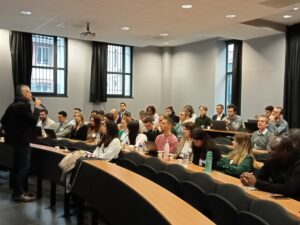
WELCOME TO MUDIT DHAKAR, PHD STUDENT AT ISA
The Institute for Sustainable Aviation is delighted to welcome Mudit Dhakar to the TSE for the 4th year of his thesis.
The aim of his
In the midst of an increasing debate concerning the environmental repercussions of transportation decisions in France, this study employs nationally representative data from the 2018-2019 Mobility Survey to investigate the determinants shaping French citizens’ preferences for long-distance travel modes. Emphasis is placed on assessing potential CO2 emissions reductions resulting from government-proposed flight bans when a train alternative with a travel time of less than 2 hours and 30 minutes exists (notably, the Paris Orly – Nantes, Paris Orly – Bordeaux, and Paris Orly – Lyon routes). Descriptive analysis reveals a pre-ban inclination among travellers to favour non-flight modes, with just 4% of trips between these cities relying on air travel. Subsequently, econometric analysis challenges the conventional wisdom that income significantly influences air travel choices, instead highlighting its impact on car trip preferences up to a specific income threshold. Additionally, it underscores the expected inverse relationship between travel distance and train travel adoption, coupled with a corresponding increase in flight preference.
reference : Xavier Bonilla, and Marc Ivaldi, « Banning short-haul domestic flights: a preliminary assessment for France », TSE Working Paper, n. 23-1482, October 2023

l

The Institute for Sustainable Aviation is delighted to welcome Mudit Dhakar to the TSE for the 4th year of his thesis.
The aim of his

The Institute for Sustainable Aviation (ISA) held its second workshop on trajectories for the future of aviation on the 15th of December 2023.

The ISA is pleased to welcome Paula Navarro, a PhD student at the Norwegian School of Economics, who has been invited by the Toulouse School
By continuing to browse this site, you are agreeing to the use of cookies for statistical purposes, as well as to facilitate information sharing on social networks. For more information, you can consult our Cookie policy.